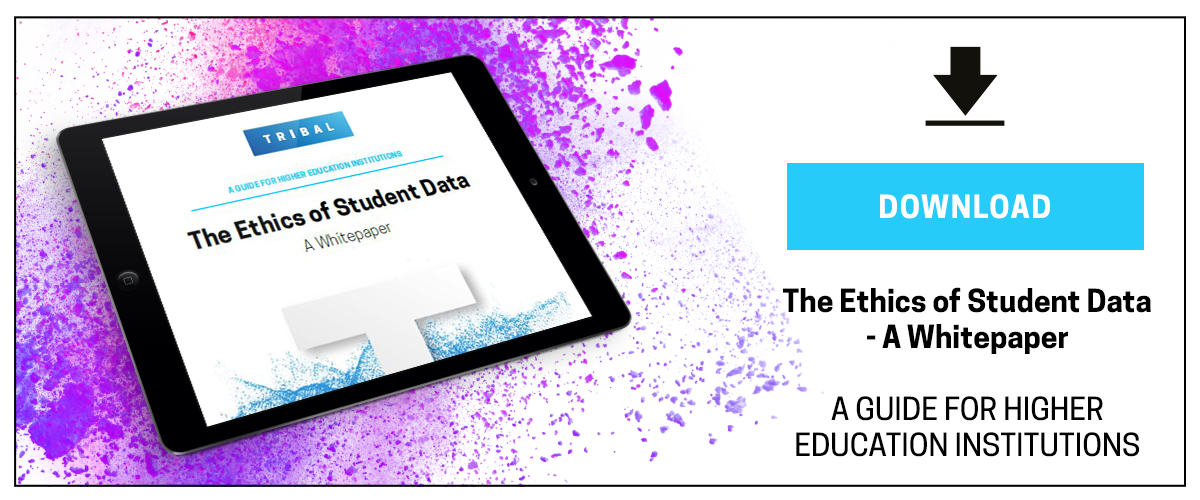How students really feel about their data
When we stop to think that every minute 450,000+ Tweets are posted; every hour 4.2 Million photos are uploaded to Instagram; and each day 2.5 Quintillion (no, not a made-up number) bytes of new data are created worldwide, we can appreciate the need to maintain order and establish security for the most sensitive forms of information.
New data means new opportunities – both for good and bad. A huge challenge for everyone is to establish ethical practices when collecting, storing and sharing data; a challenge that Higher Education needs to meet head on. We have seen many universities fall foul of hackers and even more sending unsecure emails to staff and students. This poor data security record must have an impact on students and young people and their thoughts and opinions, surely? We decided to ask them…
In our research, and our whitepaper, we have investigated ethical issues relating to the collection and use of student data. We set out to ask current university students about their thoughts on the data they surrender to their respective institutions and, importantly, their views on what institutions do with that data.
Working with the Higher Education Policy Institute (HEPI) and Youthsight, we contacted over 1000 undergraduates from a wide range of institutions and backgrounds and who were engaged in different periods of study, to make sure we really understood the issues that are important.
Some of the responses surprised us, some didn’t, and the research confirmed many of the things we thought we knew - which is no bad thing. For instance, two thirds of those responding said they would be less likely to apply to their chosen university if they knew about a poor data security record. This, as a statement could have significant consequences for admissions departments in the UK. Armed with the knowledge that data security is up there in the list of priorities alongside traditional considerations such as course content, employability prospects, satisfaction scores and location (amongst others) will likely mean that many universities must embark on a programme of process improvement and communication at a minimum. At the other end of the spectrum, there will be larger-scale, cross-departmental technology projects requiring internal training.
We now know with more certainty that students are keen on sharing their data with their peers, their parents, and with other agencies – but only in the right context and on their terms. They are more than willing to share anonymous data that can help them (and others) achieve more from their university experience; this could be the difference between passing and failing, withdrawing or even beginning a programme of study in the first place.
When we delve into the serious (and very topical) sphere of wellbeing, we know that universities have a duty of care to their students. They are often faced with the dilemma of knowing that a student’s wellbeing may be at risk but be limited in the ways in which they are able to offer support. So, whilst a large proportion of students would agree to their university sharing issues relating to their health and wellbeing with their parents or guardians, four fifths believe that information they have shared with Student Support and Welfare Services, should NOT be shared. It is easy to see why universities are challenged when deciding the best course of action.
The evolution of the digital native now means that whole lives are played out on the screens of smartphones of those in their own circles. Students see their university sharing their social media information as a step too far.
With so much to consider, Higher Education leaders face a real task to ensure that they tighten up data controls and make their policies and procedures clearer and more ‘student friendly’.
For more on what students really think about their data, why not read the Whitepaper?
TOPICS:
SHARE THIS ARTICLE:





